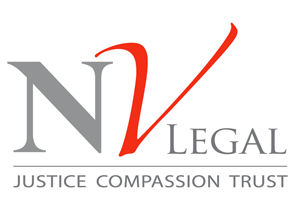The importance of workplace safety: Case study, Norwich V Ipswich security guard
Workplace safety is a critical aspect of any organisation, ensuring the well-being and protection of employees in their professional environment.
Unfortunately, not all employers prioritise safety measures, which can lead to devastating consequences for their workers.
We recently settled a case that highlights the significance of taking workplace safety seriously. The incident involved a female security guard who suffered severe injuries during a football match due to inadequate safety protocols.
Workplace safety – security guard
Our client, a female security guard, found herself alone in the away end at a Norwich v Ipswich football match. As the match intensified, tensions rose amongst the fans. In the last minute of the game, Ipswich equalized, resulting in a surge of excitement from the crowd. Tragically, this surge led to our client being crushed by fans, causing both physical and psychological injuries.
One of the critical factors that exacerbated this situation was the lack of proper communication channels available to the security guard. Without a form of radio communication, she was unable to call for backup or receive assistance during the incident. The absence of effective communication only served to worsen an already perilous situation.
Battle for justice
When our client sought compensation for her injuries, she faced an initial denial of liability from the security company. However, with meticulous effort and determination, from solicitors at NV Legal, we built a compelling case to prove the company’s negligence and establish their responsibility in the incident. The evidence highlighted the absence of essential safety measures, including communication devices and crowd control protocols.
As liability was denied, proceedings were issued in court, and after the first directions hearing the defendant admitted responsibility for the incident and we were able to achieve a favourable outcome for our client. The security company accepted responsibility for their negligence and agreed to pay her £62,500 as compensation for the physical and psychological trauma she endured.
Workplace safety measures for security guards
Crowd management and control: Security guards should be trained to effectively manage and control crowds, especially in high-traffic areas or events. They need to be aware of crowd dynamics, potential risks, and how to prevent situations from escalating into dangerous scenarios.
Emergency procedures: Security guards must be well-versed in emergency procedures and protocols specific to their workplace. This includes knowledge of evacuation routes, assembly points, fire safety procedures, and first aid techniques. They should also be familiar with the location and proper use of emergency equipment such as fire extinguishers or defibrillators.
Security threats and risk assessment: It is crucial for security guards to be aware of potential security threats and conduct regular risk assessments. They should be trained to identify suspicious activities, recognise signs of danger, and report any unusual or concerning behaviour to the appropriate authorities. This includes being vigilant about potential theft, vandalism, trespassing, or unauthorised access to restricted areas.
Personal safety and self-defence: Security guards need to prioritise their own personal safety and be equipped with the necessary skills for self-defence. They should receive training in self-defence techniques, conflict resolution, and de-escalation strategies to handle confrontational situations effectively and protect themselves from harm.
Communication and reporting: Effective communication is essential for a security guard to maintain a safe work environment. They should have reliable means of communication, such as radios or mobile devices, to report incidents, request assistance, or relay important information. Security guards must also be proficient in accurately documenting and reporting incidents, accidents, or any suspicious activities for further investigation.
The significance of workplace safety
Our case study serves as a stark reminder of the vital importance of prioritising workplace safety. Here are a few key reasons why employers must take workplace safety seriously:
Employee well-being: Employers have a moral and legal responsibility to ensure the well-being of their employees. A safe and secure working environment is crucial for promoting physical and mental health and preventing accidents and injuries.
Productivity and performance: When employees feel safe and protected at work, they are more likely to be motivated, engaged, and productive. A culture of safety fosters trust and empowers individuals to focus on their tasks without unnecessary worry or distraction.
Reputation and brand image: Organisations that prioritise workplace safety demonstrate their commitment to the welfare of their employees and the community. Such a reputation can significantly enhance their brand image and attract top talent, customers, and business partners.
Legal compliance: Compliance with workplace safety regulations is not only ethically imperative but also legally mandated in many jurisdictions. Failure to meet these requirements can lead to severe legal consequences, including fines, penalties, and even criminal charges.
Cost savings: Investing in workplace safety measures can save organisations from incurring substantial costs associated with accidents, injuries, medical expenses, legal battles, and compensation claims. Preventing incidents is far more cost-effective than dealing with the aftermath.
Is your company doing enough?
The case study of the female security guard who suffered injuries during a football match underscores the significance of workplace safety. Employers must recognise the value of ensuring a secure environment for their employees, not only for their well-being but also for the overall success and reputation of the organisation.
By taking workplace safety seriously, employers can protect their workforce, mitigate risks, and foster a culture of care and responsibility.
NV LEGAL
If you have been affected by any of these issues, contact us for FREE legal advice. CONTACT US HERE
NV Legal has a specialist team of solicitors who are experts in relation to accidents in the workplace. If you or someone you know has questions about these issues, contact us for free legal advice.
Advice is from qualified solicitors, regulated by the Solicitors Regulation Authority.
Call – 03308 281 586
Email – info@nvlegal.co.uk
Website – www.nvlegal.co.uk
Find us on social media – Facebook LinkedIn
USEFUL LINKS
10 things you must do after an accident at work
Frequently asked questions – personal injury claims


